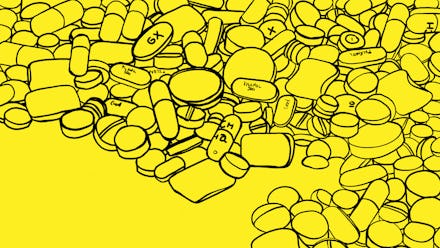Holding drug companies responsible will not fix our country’s addiction problem

In a landmark ruling yesterday, an Oklahoma court found that Johnson & Johnson and its subsidiaries bore wide responsibility for the opioid addiction epidemic and the company was ordered to pay the state $572 million in damages. In the decision, made by Judge Thad Balkman, he stated, “The opioid crisis is an eminent and menace to Oklahomans. Defendants caused an opioid crisis that is evidenced by increased rates of addiction, overdose deaths and neonatal abstinence syndrome in Oklahoma.”
Over 2,000 cases have been brought by states and municipal and Tribal governments against drug companies, but this is the first case to reach trial in which a state sought to hold a major pharmaceutical company responsible for the havoc caused by addiction. “Balkman’s decision could have sweeping implications as other states and communities try to hold companies responsible for fueling the opioid epidemic,” CBNC reported.
Here’s a little background on the case, to help contextualize the ruling and its implications:
- Two other companies — Perdue Pharma and Teva Pharmaceuticals — were also defendants in the original case, but settled in March and May respectively.
- Perdue paid the court $270 million and Teva paid $85 million, but neither company admitted fault with the settlements.
- Johnson & Johnson became the sole defendant in the case after Perdue and Teva settled
- At $572 million, the payout sounds high, but the state was asking for $17.2 billion.
- The money will go towards funding Oklahoma’s addiction treatment plan, but it will only cover the cost of funding for a single year.
- Johnson & Johnson has stated that they plan to appeal what they described on their website as a “flawed ruling.”
On the surface, for those concerned about the opioid epidemic who think that drug companies should bear some weight of responsibility for the crisis, this seems like very good news. Oklahoma didn’t get as much as it asked for, sure, but now there is legal precedent to hold companies responsible. But is that all that’s at stake here?
It’s not that this ruling against Johnson & Johnson is necessarily bad for the treatment of addiction, it’s just that holding drug companies responsible will certainly not “fix” our country’s addiction problem.
Some experts feel that the coverage of this case diverts attention away from some deeply important issues. “This ruling in Oklahoma is kind of odd to me because the manufacturer that was condemned might be bearing the brunt of responsibility because other companies settled,” says Arwen Podesta, a New Orleans-based psychiatrist who specializes in addiction recovery, about the case. Johnson & Johnson, while it is a household name in personal hygiene, is not actually considered to be a major player in the opioid market.
Podesta says that the role that pharmaceutical companies play in addiction is complex, and not all opioids are equally abused or available. For example, Fentanyl, an extremely strong synthetic opioid pain reliever, is a drug that has been slowly increasing in abuse since the 70s. However, Johnson & Johnson only produce the Fentanyl patch (they sold the pill rights in 2015), and Fentanyl is most frequently abused on the street — it’s sometimes mixed with heroin or cocaine. The patch itself is seldom mentioned in terms of addiction, although people managing addiction have gotten really creative about how to abuse it.
Podesta is careful to note that none of this means that Johnson & Johnson shouldn’t bear some responsibility here. But she says, “We’re not focusing on the actual problem. This suit might have diverted our attention from the actual problem, which is addiction,” she says, “I would love to hear more questioning of how we got here. Let’s look at the bigger picture. When we say ‘let’s use this money for treatment,’ we need to look at bigger societal treatments.”
It’s not that this ruling against Johnson & Johnson is necessarily bad for the treatment of addiction, it’s just that holding drug companies responsible will certainly not “fix” our country’s addiction problem. “I wish that pharma was more proactive in this conversation instead of participating in it for fear of financial punishment. I think that money coming into treatment is great, but we should highlight prevention. Let’s not miss the point,” Podesta says.
So how do we address addiction in a prevention-oriented manner? “First of all, we need to recognize [addiction] as complicated by many factors,” she says. “There are two kinds of factors, other than the drug itself, that play into addiction: the biological or genetic, and the psychosocial. We need to talk about addiction the brain disease, the genetics and biology, but we also need to talk about poverty, guilt, shame, trauma, and the reasons that people are prone to seek a drug in the first place.”
As a person who, personally, struggles with addiction, I can say that my addiction is more complicated than just getting drugs. It began not just because drugs were available to me, but because I was looking for a solution to larger emotional and relational issues. When I say that to Podesta, she confirms that that’s usually how it works. “If you’re completely bombarded by living with trauma, you’re basically going to be cramming something in to feel better,” she says. Podesta seems to think, and I agree, that this is where the conversation about addiction should be centered, on the causes that are harder to talk about. It’s not that we don’t need to talk about Big Pharma or their responsibility in dealing with addiction, it’s just that, as Podesta says, “we need to question how we can prevent addiction” in the first place.